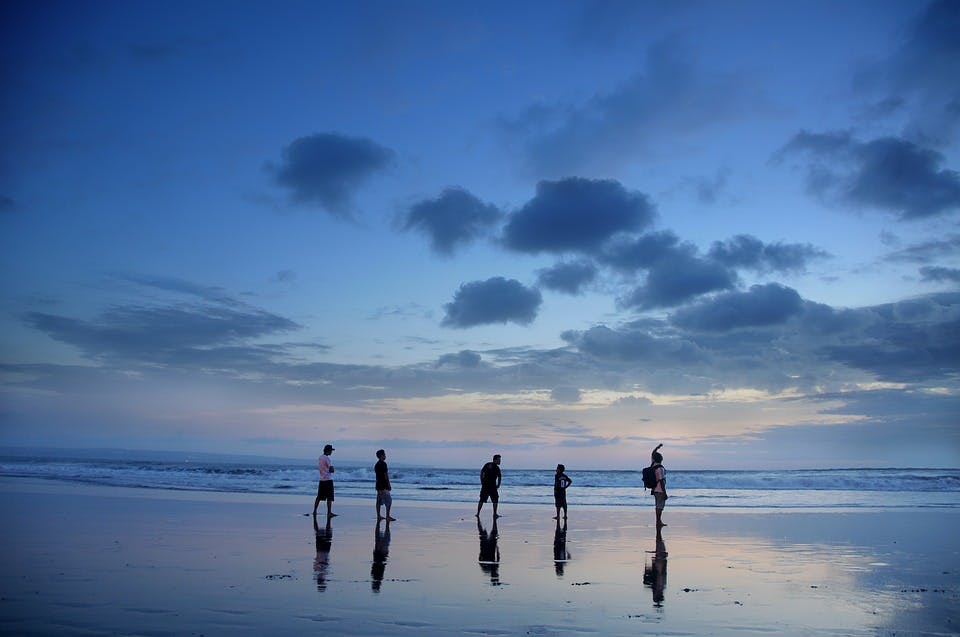So you’ve decided to travel to Hawaii, but now it’s time to actually create the vacation. How and what should you prioritize? How much should you budget for? Where will you stay and what amenities do you wish to include? How do you know which activities to choose? The list of questions is endless, which is why we’ve created a quick Hawaii vacation guide for you to follow when planning your trip.
So you’ve decided to travel to Hawaii, but now it’s time to actually create the vacation. How and what should you prioritize? How much should you budget for? Where will you stay and what amenities do you wish to include? How do you know which activities to choose? The list of questions is endless, which is why we’ve created a quick guide for you to follow when planning your Hawaii vacation.
Let’s talk costs and budgets since this is usually the first topic that comes up in travel conversations. We’ve done some research and found out that the typical vacationer spends approximately $150 a day, per person. But before you run for the hills, let us first explain that this cost typically includes hotel, transportation, meals, and activities, typically. This means if you are a family of four planning to spend a week in Hawaii, you can expect to spend roughly $4,200 on the entire trip, not including airfare. This is a typical amount most families budget their travel at, but if you’re trying to vacation on tighter funds, there are ways to lower this average.
For example, a rental car adds a few hundred dollars to your trip, and if you wish to cut back on this, we suggest traveling to Oahu or Maui. Kauai and Big Island are rental car MUSTS, due to their sprawling landscapes with landmarks, resorts, and sightseeing being much more spread out. Whereas on Oahu and Maui, you can easily get away with public transportation or simply stay within your hotel’s vicinity for your entire vacation.
Another way to save is by renting accommodations with a kitchen, so you can prepare your own meals. By simply packing a lunch and eating breakfast in your hotel room every day, you could save hundreds on meal costs. Eating out, especially in Hawaii, tends to get expensive very quickly, even if you are looking for cheaper meal options. All-inclusive hotel packages often offer lower prices on meals as well.
Okay, so now you’ve got your budget roughly figured out. Next, you need to decide which island you want to visit. If you have over a week to spend, we always recommend a multi-island Hawaii vacation, because you get to enjoy a broader experience of Hawaii. But, for pricing reasons, let’s stick with a one-island option vacation. It helps to know a little bit about each island and the unique things they offer. For example, Kauai offers an extremely relaxed, quiet, and outdoorsy type of vacationing experience with little nightlife. Maui, on the other hand, offers these same qualities but with a lively nightlife in its more popular areas. Big Island provides a unique volcano experience, so this might be something to consider if you wish to see this aspect of Hawaii. Oahu harbors the state’s capital, Honolulu, and you can expect to find a bustling city but also beautiful beaches and plenty of culture. Every island presents a plethora of things to do, so don’t think if you pick a quieter island that you will become bored. Choosing an island is more like choosing a destination that caters to the type of vacationer you tend to be.
You’ve created a budget and now you’ve chosen an island. Now how about figuring out which activities to take advantage of? This will also depend heavily on your budget, as well as your activity preferences. You can buy snorkel gear at a local convenience store for $25/person and visit a different beach every day of your vacation. Or, you can book a lot of little activities, such as surf lessons, zip lining, or touring. You can also save for one big activity, like a fancy luau or a boat cruise adventure. Or you can always take advantage of your hotel and soak in its in-house amenities, like the pool, culture programs, or shopping. I think the key to really feeling relaxed on a vacation is not to have a set schedule or itinerary. This tends to transfer unnecessary stress into your trip, due to the intention of trying to hit everything on your punch list. Instead, have a flexible day-to-day schedule with a list of possible activities. My typical vacation day would be something like this:
– Wake up at leisure and enjoy breakfast at the hotel
– Go back to the room and decide which activity to pursue
– Pack and prepare for the activity, with the intention of coming back to the hotel room to recuperate before the next activity.
– Come back to the hotel for some R&R (i.e. reading a book, lounging poolside, taking a nice shower, or relaxing in the spa)
– Plan for a dinner out (or in) and the later afternoon/evening events. I sometimes enjoy some light shopping in the evening prior to dinner, cocktails, or a bit of walking/sightseeing.
This day can deviate in any direction you choose for your own vacation, just remember, the fewer expectations you have, the less stress, the deeper the relaxation, and ultimately, the better the trip.
Vacation accommodations are always something to take into consideration too. Do you want to stay in a luxurious resort? Family-friendly condo? All-inclusive hotel? First, decide on what would best fit your travel members, and then decide from there. Also, do you wish to be within walking distance of the ocean? Set back in a tropical rainforest? Close to shops, dining, and activities? Or do you prefer to be secluded? These are all factors to consider when deciding on your accommodations.
Two more quick things to mull over: Make sure to find out about any hidden fees and taxes that your hotel, car rental company or other service providers may tack on. Any paperwork you sign should have these explicitly stated, and if not, don’t hesitate to ask. Another one to remember is if you’re traveling with a large party, many restaurants automatically include gratuity in the bill, so make sure to read the check first, before adding a tip. The last thing is travel insurance. Will you be needing this? Is it possible your vacation could be canceled due to work or family problems? Is the timing still wishy-washy? You might want to consider insuring your trip, that way, you can have peace of mind if things decide to change.
Creating your Hawaii vacation should be fun and enjoyable. You can always plan to use a local travel company (like Hawaii Aloha Travel) and leave the details of traveling to us! It’s what we excel at, plus it saves you time. But regardless, the above-mentioned things are always something to consider, and we hope these little tidbits help!

